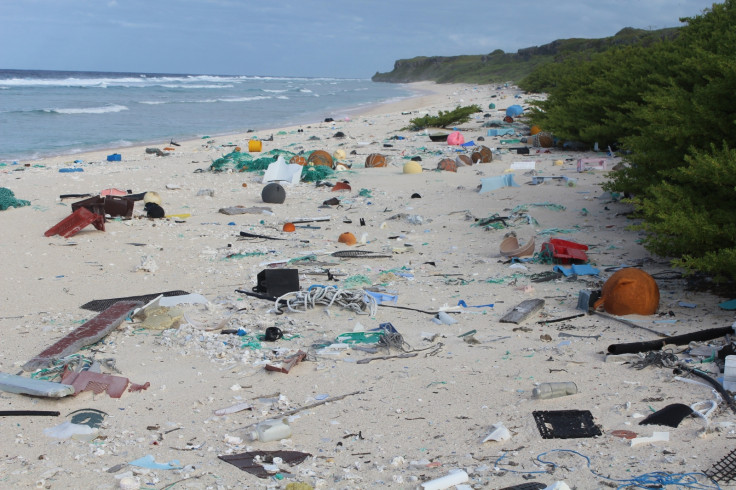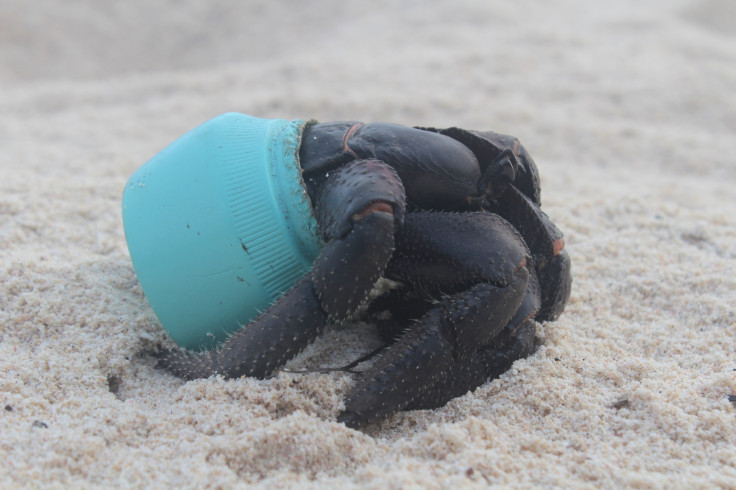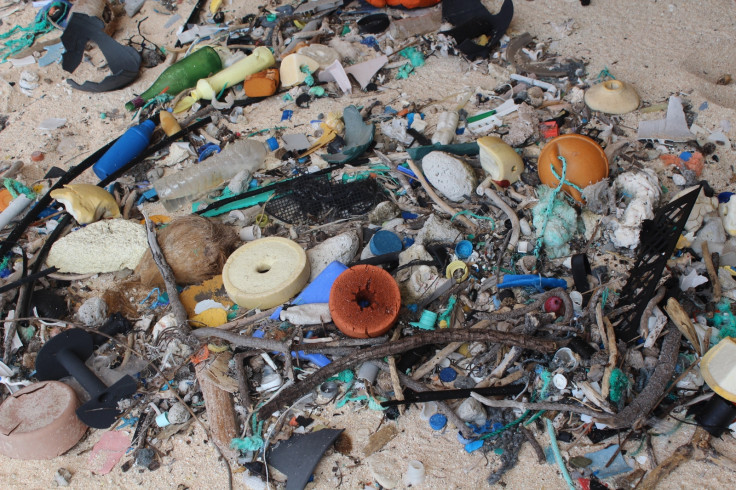Ocean pollution: Remote South Pacific island of Henderson covered in 37 million bits of plastic
Plastic debris included fishing gear, baby dummies and toothbrushes.
A remote desert island at the heart of the South Pacific Ocean is covered in plastic waste, scientists have found out. The density of debris on its beaches is the highest reported anywhere in the world – showing the devastating impact on ocean plastic pollution on some of Earth's most isolated ecosystems.
The island of Henderson, a UNESCO World Heritage Site, has never been inhabited and is not accessible to the public. There are no human habitation within 5,000km of the island, and to reach the closest metropolitan centre, Tahiti, a five-day boat journey is necessary.
A team of scientists has recently been granted permission to conduct research on the island, in order to eradicate rats which had been introduced there accidentally. However, the extent of plastic pollution on Henderson's beaches was such that the researchers decided to document it, in a study now published in the journal PNAS.
"I study marine pollution and I had in the back of my mind the idea that we would find plastic on the island when we went there. But this is the worse situation that I have seen to date. It took my breath away, the quantity and diversity of plastic pollution was incredible despite Henderson's remote location", study lead author Jennifer Lavers, from the University of Tasmania, told IBTimes UK.
From fishing material to baby dummies
Since the beginning of its mass manufacture seven decades ago, the annual world production of plastic has increased from 1.7 million tons in 1954 to 311 million tons in 2014. Most is not recycled and can end up polluting the oceans.

Measuring ocean pollution can be a costly and time-consuming task. However, studying 'sentinel species' such as sea birds, or conducting research on the beaches of remote islands can provide valuable clues about the extent of ocean plastic pollution around the world.
By looking at plastic debris washed up on the shores of islands, scientists can determine the origins of the plastic and its rate of accumulation – and this is what they did on Henderson.
The scientists estimated that the total number of plastic debris item on Henderson Island was 37.7 millions. They find that the density of debris is the highest reported anywhere in the world, with up to 671 items found per square metre on the surface of the beaches. Approximately 68% of these debris were buried more than 10cm under the sand.
The items unearthed by the researchers ranged from material for fishing to consumer items such as toothbrushes, baby dummies and cigarette lighters. The impact on local wildlife – such as sea turtles and birds – can be devastating.

"Fishing gear used to be made of biodegradable material and natural fibres, but now nearly everything that fishermen use is made of plastic. It is inexpensive to produce and to fix their material so when something gets broken and lost in the sea, there is not really an incentive to retrieve it", Lavers explained.
"Derelict pieces of fishing nets lost in the sea – 'ghost nets' – can kill many species. But our study shows that consumer items are also present on the island in great quantities".

The study points out that many items can be traced back to Asia and South America – potentially reflecting fishing activity in the surrounding waters. However, the authors believe that all countries should be working to fix the problem.
"We need to become much more responsible in how we source our material and make individual decisions to consume plastic. We also need to make our politicians aware that this is a priority for us. Politicians don't tend to act on what scientists say, but they can act when they see that the public is engaging with an issue. If people don't want ocean plastic pollution to get worse, they need to take this issue up with their politicians", Lavers concluded.
© Copyright IBTimes 2025. All rights reserved.






















